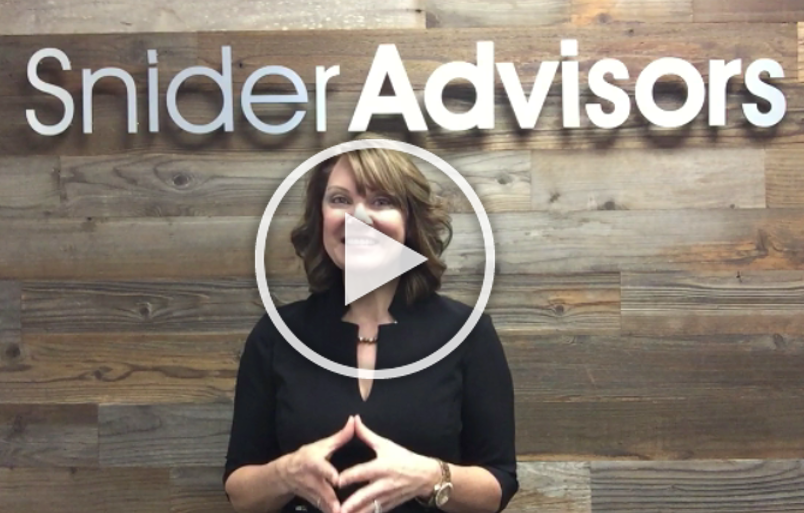Do you have what it takes to do-it-yourself?
There are many reasons why investors may want to take a more hands-on approach to their portfolio. Investing without the services of a financial adviser may be more appealing than ever, but it is not for everyone.
For some, it’s a matter of control. Engaging in wealth building first-hand can help you realize just how much your investments are earning, which will motivate you to contribute more often before retirement.
For others, it’s a matter of practicality. Handling your own portfolio means you can save on the extra fees associated with hiring a financial advisor.
But it’s important to remember that while anyone can become a do-it-yourself investor, some may find that self-management just isn’t for them.
So, if you’re considering making the leap into do-it-yourself investing, here are a few questions to ask to make sure you’re fully up to the challenge.

Do You Have the Time?
While many financial advisors make a full time career out of investing, that doesn’t mean portfolio management is a full time job. But it does require a time commitment, at least at the beginning of the process.
How much time it takes to become a successful do-it-yourself investor depends on a few factors, like your current time commitments between your vocation, avocation, and social commitments, as well as your knowledge of investing and any prior experience.
The process may take longer for someone who is completely new to investing versus someone who has been investing for years through a financial advisor. The setup and research process may go faster for someone that has spare time throughout their workweek versus someone with little to no room in their schedule.
It’s also important to remember that having a great investment strategy from the outset will shorten any initial time commitments, so it’s important to do some research and fully assess the amount of energy you have to commit to your portfolio.
You should also consider any time you may waste if you don’t manage your own portfolio, such as time spent interviewing potential advisors, communicating with advisors, and evaluating their performance.
A do-it-yourself approach could save you significant amounts of time, especially if you’re already managing certain aspects of your portfolio yourself.
Do You Have the Desire and Drive?
Of course, having the time to manage your portfolio only matters if you have the desire to do it.
The time and cost savings can be tantalizing for many investors, but before you jump into self-management, be sure that you understand the risks involved and that it’s more than just a curiosity or a whim.
You should have a general idea of where you’re headed and how much you will need to save to meet your goals. You should also be aware of your risk tolerance (how much fluctuation can you handle and still be okay?) as well as your overall excitement around investing.
Investing is a long-term process, so you will need a solid plan and a lot of patience. If you’re not totally sold on the idea, you may not see it through. Take the time to develop a strong plan (you can ask an advisor for help) and go from there.

Do You Have Basic Investment Knowledge?
You don’t need a PhD in finance to manage your own accounts, but some basic knowledge is essential.
Generally speaking, you should be comfortable with numbers, reading annual reports or a prospectus, and should understand how to execute present value or future value calculations.
The good news is that most of this can be done through online tools, like financial calculators, but you will need to be familiar enough with computers to be able to use them. If you’re not comfortable using the Internet or a personal computer, you probably won’t find it enjoyable managing your own portfolio.
It’s also a good idea to have access to financial news and other resources for learning more about investing should you need to brush up on your knowledge. Start by reading some investment books or taking a course (we have three of them) to educate yourself on the basics.
Do You Have Your Emotions In Check?
As Warren Buffet once said, “Success in investing doesn’t correlate with I.Q., what you need is the temperament to control the urges that get other people into trouble in investing.”
The key to successful investing is being able to keep your emotions in check, and this is especially true of any do-it-yourself investor. If you have a history of reacting emotionally to market volatility, then you may not have the temperament to manage your own portfolio.
The best strategy to combat the high cost of emotions is discipline. Following a rule-based system that is designed to address the fluctuations of the market and help you make choices in tricky situations is essential to success. (Learn more about Managing Investor Emotions with our free training course).
The best do-it-yourself investors have a dedication to sticking with their strategy and they tend to think things through logically instead of emotionally. If you are the type of person who can assess a situation before reacting, then you should be fine.

Do You Have Support If You Need It?
Another important aspect of being a do-it-yourself investor is understanding your own limitations.
Maybe you find that you have the drive and time to manage your own portfolio, but you don’t have a lot of knowledge or you tend to be overly emotional in your decision making.
Or maybe you’re a logical thinker with a good nose for investment, but you don’t know if you have the time or energy to keep track of your own portfolio.
The good news is that successful investors never truly work by themselves. You don’t necessarily need a financial advisor to manage things for you, but that doesn’t mean you can’t accept help from the experts when you need it.
Knowing where to go to find help and which resources will assist you in making the best financial decisions is paramount to meeting your goals.
For example, we offer professional support for our do-it-yourself investors, as well as done-for-you services should you decide that it’s not for you (but you still want the benefits of a great strategy).
But even if you still want to do everything on your own, knowing where to go for advice will help you keep your head above water in any situation. As they say, “No man is an island.”
Final Thoughts
There are many benefits to being a do-it-yourself investor, including cost savings and having control over where your money goes (and more importantly, doesn’t go). But self-managed portfolios aren’t for everyone.
If you’re considering a self-investment strategy, take into account things like time commitments, your comfort with using technology, your knowledge base about investing, and your emotional disposition.
And don’t forget that there are resources available to you to help you out in any situation, whether you decide to be a do-it-yourself investor or not (but we believe in you!).








